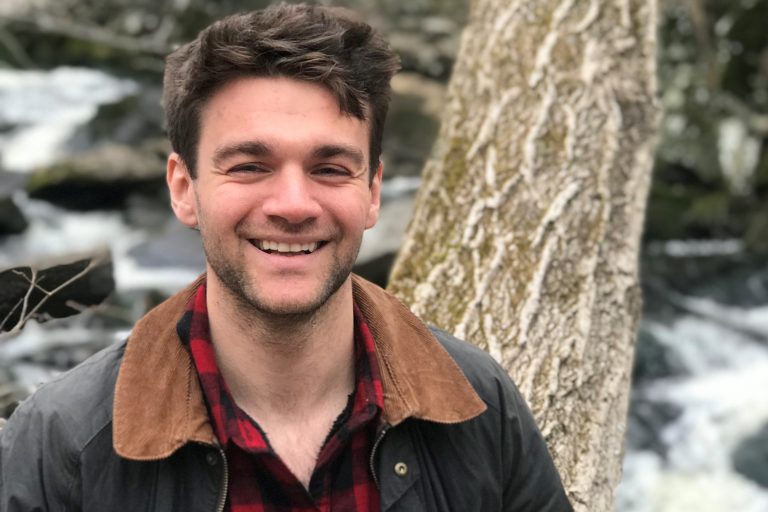When we last spoke with Christopher Bruno in 2015, he was an undergraduate student in the Department of Agricultural and Resource Economics (ARE). This year he completed his M.S. in applied and resource economics in the ARE department and has recently been accepted to the Wharton School at the University of Pennsylvania as a Ph.D. student in management.
“UConn is a very supportive community and I felt that the home environment of the CAHNR made me comfortable working with other groups,” Bruno says.
While a student in CAHNR and resident of the Peter J. Werth living-learning community, Bruno was the operations manager of UConn’s Innovation Quest, an organization designed to help students pursue their entrepreneurial ideas. He was also a UConn Learning Community Makerspace fellow and recently finished working as a consultant for a cyber security start-up company based in Israel.
“The Werth Institute helped me connect all my roles at UConn and created a synergistic ecosystem for these roles that included the CAHNR and School of Business. A more entrepreneurial mindset came to me during this time and opened my eyes to a way of thinking that was different. This was a diverse community, and that exposure helped me think about my career in a way where more was possible.”
Bruno’s graduate research included a project working with ARE Associate Professor Farhed Shah that focused on agricultural water allocation in Kansas and Nebraska, aimed at ensuring that water is allocated to different regions in an economically efficient manner.
“Water policy is extraordinarily complicated, and there often isn’t an easy answer,” Bruno explains. “Through modeling, we tried to determine optimal water allocation for agricultural purposes between regions. Our research suggests potential for adjustment of interstate water allocation policies with more consideration of the interaction between groundwater and river water sources.”
Bruno is looking forward to studying at Wharton, where he plans to focus on research related to ESG (environmental, social and governance) metrics that assess the sustainability and societal impact of business and investment. “Society is holding businesses more and more accountable. These metrics can be helpful in addressing potential areas of improvement in the performance of companies that are of tremendous importance to society at large, such as diversity, inclusion, promoting equality in pay and environmental footprint.”
“A lot of management scholars practice applied economics,” Bruno explains. “It employs transferable skills to what I have learned in agricultural economics, with a lot more to learn as well. The topical crossover for me is the focus on sustainability, and that way of thinking led me to ESG as a broader topic. Management and applied economics are very interrelated.”
Bruno’s dream career would be that of a university faculty member. “I think it is the coolest job in the world,” he says. “Professors have a unique opportunity to add to the world’s body of knowledge. I consider myself a lifelong learner, and I think academia is a great route for being able to constantly learn new things that may later be applied to other areas of the world and hopefully benefit humanity. This career path provides a medium to learn from others and forward research.”
“The path I am pursuing provides a common thread for many of my interests, but one of the things I learned last year is that I cannot be involved in too many things at the same time and be as effective as I want to be and make the impact I want to make. I have also learned that you may not always accomplish what you want, you may fall down or fail many times, but it’s about falling less hard and getting up quicker each time.”
Bruno could not move on from UConn without thanking his mentors. He says, “No person is an island and I wouldn’t be where I am today without the help of many including, Farhed Shah and Emma Bojinova from ARE, David Noble at the Werth Institute, David Souder, Rich Dino and Lucy Gilson with the School of Business, Rich Miller from the Office of Sustainability and many, many more, such as those who run the Learning Communities, ARE, the Management Department and the Office of Environmental Policy, among others who I may not be listing.”
Follow UConn CAHNR on social media.



